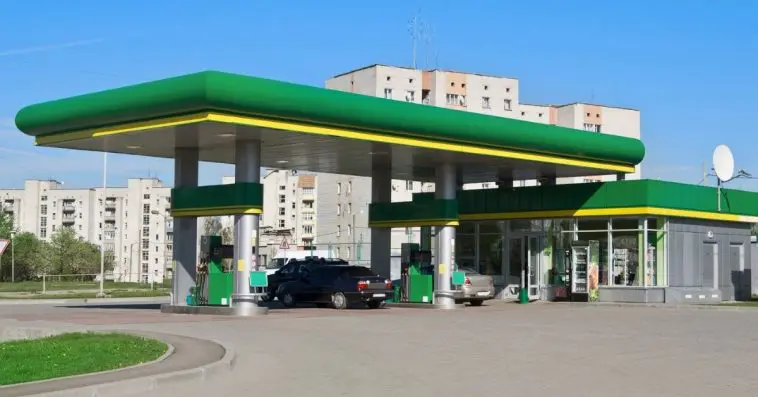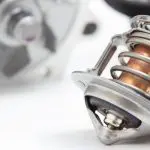When driving, it’s important to put the best gas into your car, and the best gas comes from Chevron, or if you can find one, Costco gas stations.
Generally, gas is divided into two categories, normal gasoline and premium gasoline. Now, these two have an important distinction, but they aren’t the quality we’re talking about.
With gasoline, you may think that a larger octane number means higher quality because it is a common misconception and because it costs more, so it must be better, right?
However, it is not an absolute measure of quality, as not only is it not better for all cars, there is variance in quality among the same octane ratings, so, let’s dive into what actually goes into good gas!
TABLE OF CONTENTS
What Makes Gasoline Good Or Bad?
Generally, people talk about premium and top-tier gasoline as the same thing, but in fact, these are different. Top-tier gasoline is what you want in every car, but not every car needs premium gasoline.
The distinction between normal and premium gasoline is octane rating, which is a measure of the fuel’s ability to perform in higher performance engines.
Either a car needs premium, or premium won’t help the performance much, if at all.
Top-tier fuel, on the other hand, has additives to improve the performance of the engine and keep it running longer.
However, the specifics of it are subject to misunderstandings, which I’ll attempt to clear up for you.
- First, there is the misconception of lower-quality fuel being dangerous. In America, specifically, this is simply not true, due to there being regulations on fuel that prevent dangerous fuel from being sold. Every gas station has to sell clean fuel, or they’ll be in hot water with the US government.
- Second, there is a misunderstanding that top tier fuel improves vehicle performance. This isn’t entirely false, but it needs some more explanation, due to there being other parts and factors involved. See, top-tier gas improves how the engine runs, and increases fuel efficiency, but isn’t going to help any other part of your car.
Top tier gas, specifically, has additives that reduce carbon buildup in the engine, helping keep your engine running smoothly for longer.
Not only that, it’ll increase overall expected longevity by reducing some of the strain on the engine and preventing it from gumming up with carbon.
Premium Gas
A lot of people think that premium gas and top tier gas are the same things, as premium and top tier generally mean the same thing.
As I’ve mentioned before, they are actually different, with entirely different factors giving them their names.
As I’ve, again, mentioned before, top tier gas uses fuel additives to make the fuel perform better, while premium gas has a higher octane rating than normal gas.
Premium gas refers to gas that has an octane rating of about 90, with the octane rating being the maximum performance of the fuel.
Specifically, octane rating is a measure of how much you can compress the gasoline before it ignites.
This only applies to gasoline engines, and while it allows greater theoretical performance, most cars aren’t set up to use premium gas to its fullest potential.
This would requires a specific “tuning” done to the car, which would make it run worse on normal gasoline.
Because of this, while premium gasoline will generally make your car run at least a little bit better, it’s not generally worth it if your car is designed to run on normal fuel.
Regular Gas
Now, we have regular gas, which is the other type of gas apart from premium that you will commonly see that is designated via octane rating.
While Premium gas has an octane rating of 90, Regular gas has an octane rating of 87.
This lower octane rating means the gas can’t be compressed as much before it explodes, which can reduce efficiency, especially in a car designed for premium gas.
It is not, however, harmful in and of itself. What can be harmful is engine knocking, which is your gasoline combusting in an unstable manner, which is bad for your engine.
Generally, if you have engine knocking, you should try using premium gasoline to see if that fixes the problem. Generally, it will, assuming it is, in fact, normal engine knocking.
Regular gas, while it is more likely to cause knocking and is a bit less efficient, is also cheaper. This is due to the refining process for regular gas being less expensive compared to premium gas.
Which Should I Use?
Now, what does all of this mean?
First, is that generally, premium gas isn’t necessary, or even preferred. Generally, however, implies there are times when you should use premium, which I’ll cover here.
First, is that if the car manufacturer explicitly tells you to use premium gasoline, you most likely should.
Some vehicles, as I’ve mentioned before, are designed to run on premium, especially higher-end, modern cars.
The engines simply aren’t built to use normal fuel, and you will see lower performance and more wear and tear as a result of using regular fuel in cars made for premium.
Second, is when you hear engine knocking from your car. Engine knocking is, well, a knocking sound from your engine.
I’ve already detailed the basic mechanism of engine knocking, so now, let’s look at what’s going on to cause the improper combustion.
Starting off the list of causes, we have using premium fuel. When you use premium fuel, the engine may adapt to the premium fuel, leading to engine knocking when you use regular fuel.
If this is the case, you’ll have to keep using premium fuel, or perhaps talk to a mechanic to see if they can do anything.
Next, we have older or damaged vehicles.
If a car is experiencing knocking with regular fuel for no obvious reason, it may just be age or some slight damage, which can be counteracted by using premium fuel.
Is Premium Better?
As I’ve said, Premium isn’t better in all cases.
It has specific situations in which you need to use it, some situations in which it is preferred, and some situations in which its effects are negligible at best.
Furthermore, it is more expensive, so only use it if you specifically have to or have the money to spend on the performance boost.
Best Gas Stations In The US
Now, as far as the best gas stations, there are the best, and there are those comparable to them.
For example, Costco gas is the best, but Chevron is a close second and is easier to find.
In the case you can’t find either of these, here is a list of some of the best gas stations in America:
- Shell
- Sinclair
- Mobil
- Holiday
- Texico
- BP
- Kwik Trip
Conclusion
Overall, you want to use top tier gas from Costco, or Chevron, in your car, with the type of gas being decided by your specific situation, with top tier gas increasing stability, performance, and the lifetime of your engine.
On top of this, using premium gas will also increase performance, if you can take the increased cost, and is necessary for certain vehicles.
Whether you run regular or premium, whether you can find top tier or not, just remember, all the gas you can find will be safe to use for at least a little bit.
No point in paying for a tow when you could just use a bit of lower quality gas for a mile or two, after all!




